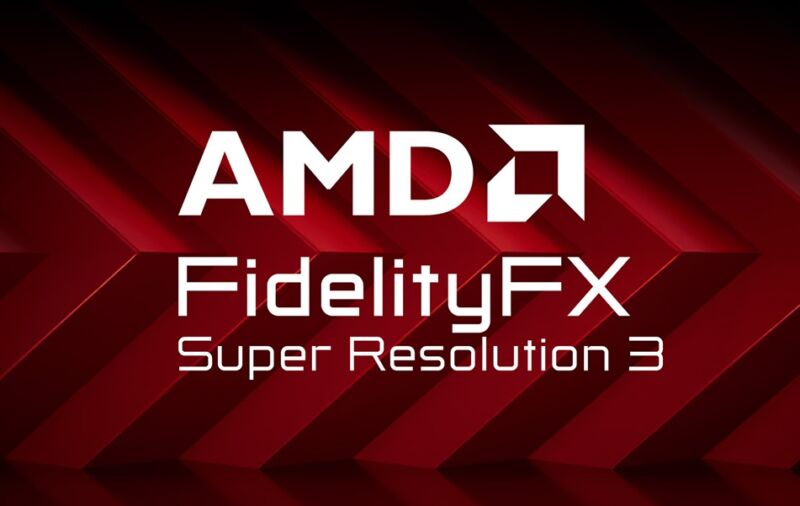Last summer, AMD debuted the latest version of its FidelityFX Super Resolution (FSR) upscaling technology. While version 2.x focused mostly on making lower-resolution images look better at higher resolutions, version 3.0 focused on AMD's "Fluid Motion Frames," which attempt to boost FPS by generating interpolated frames to insert between the ones that your GPU is actually rendering.
Today, the company is announcing FSR 3.1, which among other improvements decouples the upscaling improvements in FSR 3.x from the Fluid Motion Frames feature. FSR 3.1 will be available "later this year" in games whose developers choose to implement it.
Fluid Motion Frames and Nvidia's equivalent DLSS Frame Generation usually work best when a game is already running at a high frame rate, and even then can be more prone to mistakes and odd visual artifacts than regular FSR or DLSS upscaling. FSR 3.0 was an all-or-nothing proposition, but version 3.1 should let you pick and choose what features you want to enable.
It also means you can use FSR 3.0 frame generation with other upscalers like DLSS, especially useful for 20- and 30-series Nvidia GeForce GPUs that support DLSS upscaling but not DLSS Frame Generation.
"When using FSR 3 Frame Generation with any upscaling quality mode OR with the new 'Native AA' mode, it is highly recommended to be always running at a minimum of ~60 FPS before Frame Generation is applied for an optimal high-quality gaming experience and to mitigate any latency introduced by the technology," wrote AMD's Alexander Blake-Davies in the post announcing FSR 3.1.
Generally, FSR's upscaling image quality falls a little short of Nvidia's DLSS, but FSR 2 closed that gap a bit, and FSR 3.1 goes further. AMD highlights two specific improvements: one for "temporal stability," which will help reduce the flickering and shimmering effect that FSR sometimes introduces, and one for ghosting reduction, which will reduce unintentional blurring effects for fast-moving objects.
The biggest issue with these new FSR improvements is that they need to be implemented on a game-to-game basis. FSR 3.0 was announced in August 2023, and AMD now trumpets that there are 40 "available and upcoming" games that support the technology, of which just 19 are currently available. There are a lot of big-name AAA titles in the list, but that's still not many compared to the sum total of all PC games or even the 183 titles that currently support FSR 2.x.
AMD wants to help solve this problem in FSR 3.1 by introducing a stable FSR API for developers, which AMD says "makes it easier for developers to debug and allows forward compatibility with updated versions of FSR." This may eventually lead to more games getting future FSR improvements for "free," without the developer's effort.
AMD didn't mention any hardware requirements for FSR 3.1, though presumably, the company will still support a reasonably wide range of recent GPUs from AMD, Nvidia, and Intel. FSR 3.0 is formally supported on Radeon RX 5000, 6000, and 7000 cards, Nvidia's RTX 20-series and newer, and Intel Arc GPUs. It will also bring FSR 3.x features to games that use the Vulkan API, not just DirectX 12, and the Xbox Game Development Kit (GDK) so it can be used in console titles as well as PC games.



3175x175(CURRENT).thumb.jpg.b05acc060982b36f5891ba728e6d953c.jpg)

Recommended Comments
There are no comments to display.
Join the conversation
You can post now and register later. If you have an account, sign in now to post with your account.
Note: Your post will require moderator approval before it will be visible.